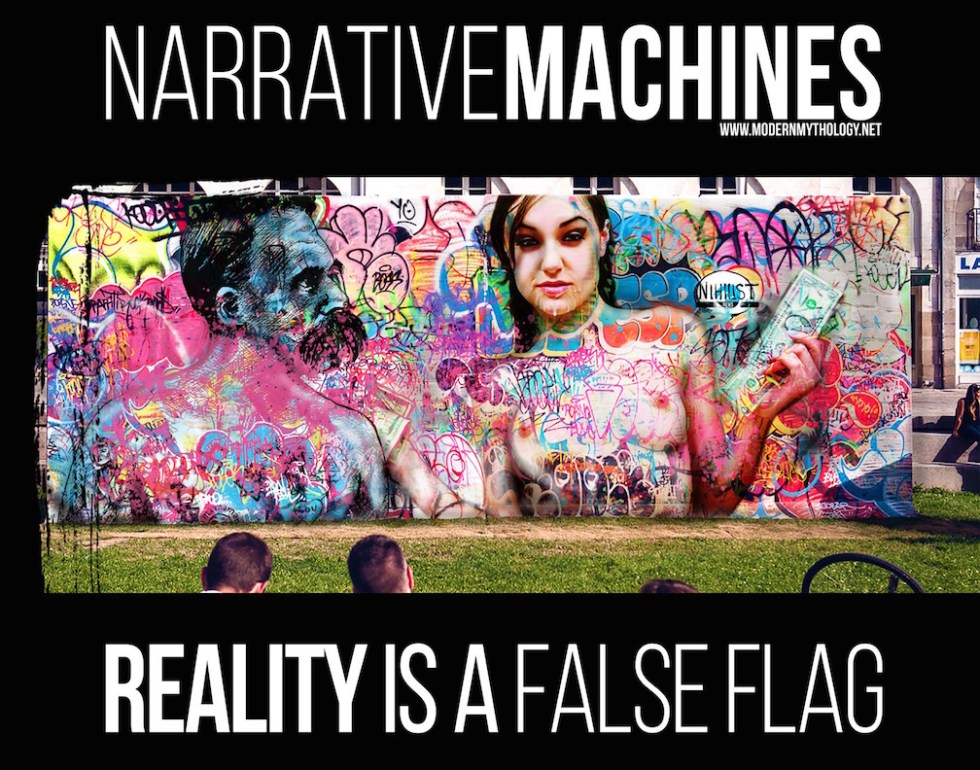
Wilder Gonzales Agreda & R.U. Sirius
In 2015, Wilder Gonzales Agreda interviewed me for http://peruavantgarde.blogspot.com. I’m fond enough of the results to present some of the musings here with some updated annotations. Annotations in caps and blue
Why do you think people in general (not elite) tend to avoid changes even if they finally are going to benefit everyone? Why is to so hard to change mentalities? They seem to get frightened always.
Our minds are SEEM TO BE geared, evolutionarily, towards the recognition of patterns and its predictive mechanisms are most naturally geared towards the immediate near situation… hunting food, avoiding things that might harm you immediately, maybe some gathering, getting shelter and so forth. It’s kind of amazing that we even got to consciously planned agriculture. Now we’re in societies and cultures of astounding complexity, but many of us are still geared towards our immediate comforts and securities. The simplest – or simple-mindedest way to attain those things is to go along with what everyone else is doing and find your place within it. You get a kind of security of the hive, the pack, the tribe. That security is challenged situationally from time to time but the pack basically likes to shoot the messenger. In apocalyptic situations, this tendency may only get worse.
Academics use to say that in current postmodernism people lose faith on ideals, and they live just for the moment, the ego and pleasure. How do you see this situation regarding counterculture ideals and utopias? Or you see we are living a new era?
I’ve never really thought about postmodernism in terms of faith, but I’m sure it would point to and also provoke a lack of it. And I don’t know that postmodernism is particularly a critique of hedonism or spontaneity IF THAT’S WHAT YOU’RE IMPLYING
Academic postmodernism, which has become TO A GENERALIST APPEARS mostly indistinguishable from poststructuralism, culture theory, critical theory, what have you… really, seems to be a dense thicket of illuminating perceptions, fecund horseshit and lots of tangled up nonsense. This is because academics have to produce a lot of words, and because academic postmodernism came out of the demise of the radical left of the 1960s and it’s splintering into oppressed identity formations. Academic pomo — from it’s roots in questioning the highly defined enlightenment paradigm of Western capitalism and it’s Leninist cousin — seems to have constructed some kind of a linguistic/memetic umbrella under which these various strains of obsession with gender, race and colonialism could still be interrelated. Unfortunately, these relations are constructed DESCRIBED through a peculiar elite specialized language that’s only accessible to other members of the academic tribe. Students get infected by it but usually drop it once they start dealing with the actuality of the world and their not-politically-correct sexual desires. IT SEEMS NOW TO BE CONTINUOUSLY UBIQUITOUS IN CERTAIN CIRCLES, ALBEIT IN A SIMPLE FORM OF TOTALISMS AND CERTAINTIES, SOME OF THEM MORE OR LESS ON TARGET. PROBABLY A REACTION TO THE REACTION AND SOMETHING TO DO WITH SOME KIND OF STASIS (ECONOMIC?) PEOPLE ARE EXPERIENCING POST-COLLEGE THAT KEEPS THEM IN THE SAME CONTEXT
If I could pick out two fundamental ideas from postmodernism that have meaning and appeal for me:
One: it would be the idea that the singular romanticized consistent western classical liberal individual is a limiting construct and not an actual thing. There are no “stand up guys.” Humans are a fluid changeable process and there are multiplicities of selves, particularly amongst people not enslaved by lives of full time labor –- who generally are the only ones that are privileged to have a self or a multiplicity of selves in the first place.
Two: The other appealing aspect of PoMo is the idea that truth is radically contingent. UNFORTUNATELY PICKED UP BY VARIOUS RIGHT WING THINKERS AS A WAY TO SEW CONFUSION IN DOMAINS WHERE FACTS — EVEN APPROXIMATE FACTS — MATTER TO MUCH TO TREAT AS CONTINGENT. That would not necessarily be hard physical truth (if I threatened an academic pomo with a baseball bat, he or she would recognize it’s absoluteness) but philosophical truth, political truth and even scientific truth (the latter is too long an explantion for this discussion). And with the possible exception of scientific proofs, this seems to be palpably (contingently) true. That is sort of the way things are, whether we like it or not. Read more “Changes, Postmodernism, Counterculture, Ego”




